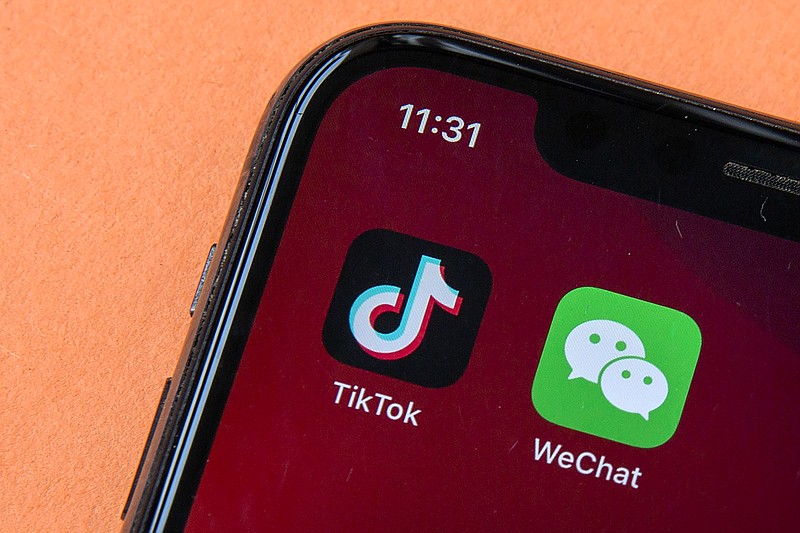"Our children have become unknowing participants in a decades-long experiment."
-- U.S. surgeon general's report on social media use
We used this space last Friday to lament some of the ways social media functions, with a bent toward the sensational, at least when there's video available. And people get outraged. When the eventual discovery of facts mitigate the original post -- i.e., make it less outrageous and more comprehensible -- social media often yawns.
It's why the Internet and social media is such a tumultuous space. What one sees can depend on timing, on their personalized settings and on the algorithms social media apps use to figure out what each of us want to see (or what they want each of us to see).
Social media became part of our lives almost overnight, starting to a large degree with MySpace (remember that?) in the early 2000s. It was long after the Internet was born, but just a few years after the World Wide Web structure gave average people a fairly simple way to access information. Then, in 2007, came the iPhone. It wasn't the first smartphone, but it revolutionized the industry and, ultimately, the world. Those were days of wonder as we all realized what our computers, even ones in our pockets, were capable of.
In the 16 years since, smartphone apps and, in particular, social media has consumed humankind. It is an ever-present fact of our lives. With their addictive (by design) qualities, users can hardly get enough. And the reality is few people have ever really stopped to consider important questions like, is this good for us? Is this safe? Are these inventions, on which billions and billions in profits rely, benign, friendly or hostile to our well-being and, maybe more importantly, to that of our younger kids who've never existed outside the realm of the Internet and all its related devices?
The questions largely ignored in the exhilaration of discovery need to be asked as we recognize it's not all fun and games.
On May 23, U.S. Surgeon General Dr. Vivek Murthy issued an advisory warning about the impact social media is having on the mental health of young people. The nation has not done enough independent research to determine social media's safety for the 95 percent of 13 to 17-year-olds who report using those platforms, the advisory said.
Murthy's report says: "Brain development is a critical factor to consider when assessing the risk for harm. Adolescents, ages 10 to 19, are undergoing a highly sensitive period of brain development. This is a period when risk-taking behaviors reach their peak, when well-being experiences the greatest fluctuations, and when mental health challenges such as depression typically emerge.12, 13, 14 Furthermore, in early adolescence, when identities and sense of self-worth are forming, brain development is especially susceptible to social pressures, peer opinions, and peer comparison."
A study cited in the report says adolescents who spent more than three hours per day on social media -- we'd be surprised if that didn't describe a lot of them -- faced double the risk of experiencing poor mental health outcomes including symptoms of depression and anxiety. Other studies show benefits from limiting social media exposure.
We're reminded of how many conversations we've had with adults who lived in the pre-social media era. Most of them express relief that such a thing never existed back in their days as teenagers.
A study of 14-year-olds found that greater social media use predicted poor sleep, online harassment, poor body image, low self-esteem, and higher depressive symptom scores with a larger association for girls than boys, the surgeon general reported. "A majority of parents of adolescents say they are somewhat, very, or extremely worried that their child's use of social media could lead to problems with anxiety or depression (53%), lower self-esteem (54%), being harassed or bullied by others (54%), feeling pressured to act a certain way (59%), and exposure to explicit content (71%)."
To a degree, the situation reminds us of cigarettes and how for decades people inhaled what was offered with very little knowledge of what they were doing to themselves. Today, we know -- cancer, early death, stroke -- and we wonder how anyone could have ever thought otherwise. But they did. And the industry that made them did nothing voluntarily to reveal the dangers.
The surgeon general says it's critical that independent researchers and technology companies work together to rapidly advance a clear understanding of the impact of social media on children and adolescents. We couldn't agree more
We have loosed anarchy upon our children's world. It's past time to determine the effects of that for which we remain responsible.
More News
NoneWhats the point?
The surgeon generals warning should be headed: Lets find out what weve done — and continue doing — to our kids.

